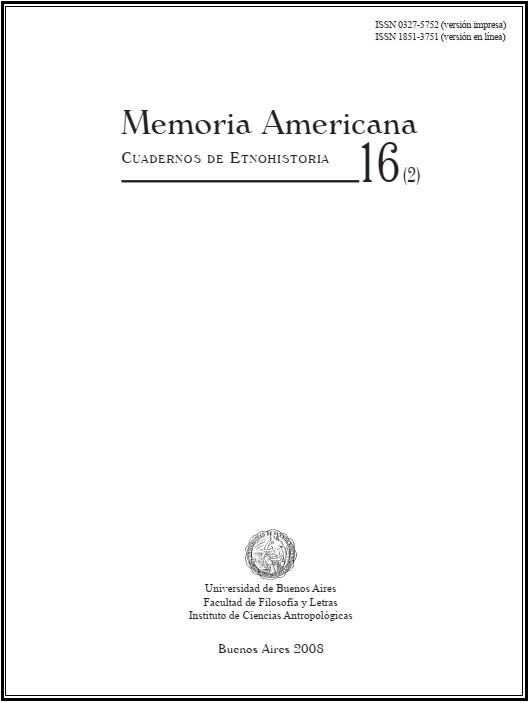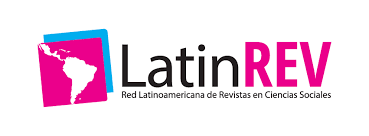Dominating through participation? The shaping of neoindigenism in post-dictatorship Chile
Abstract
Since the democratic restoration in 1990, the Chilean state has been concerned with its connectedness to the civil society and nowadays, participation and empowerment are political buzzwords that are omnipresent in politicians’ debates and the marketing of democracy. An especially important issue in this regard is the emergence of the so-called multicultural citizenship and the widespread recognition of cultural diversity accompanied by the will to empower disadvantaged, discriminated against and marginalized indigenous peoples. Since the beginning of the 1990s, cultural diversity has become the new universal, and there is a novel interest in the indigenous community as a self-generating formation capable of governing itself. Nevertheless, it is worth observing that this will to improve the fate of the natives through new forms of citizen’s participation, cultural dignifying and the implementation of an IDB-funded ethnodevelopment program called Origins, is intrinsically connected to the neoliberal agenda of the postcorporatist state and new forms of social domination. In this paper ...Downloads
References
Abélès, Marc 2005. Anthropologie de l’Etat. Paris, Petite Bilbiothèque Payot.
Alarcón, Ana María, Aldo Vidal y Jaime Neira 2003. Salud Intercultural: elementos para la construcción de sus bases conceptuales. Revista Médica Chilena 131: 1061-1065.
Aylwin, José (ed.) 2001. Políticas Públicas y Pueblo Mapuche. Concepción, Instituto de Estudios Indígenas/Ediciones Escaparate.
Bengoa, José 1999. Historia de un Conflicto: el Estado y los Mapuche en el Siglo XX. Santiago de Chile, Planeta-Ariel.
Boccara, Guillaume 2005. Del Buen Gobierno en Territorio Mapuche. Cuadernos de Antropología Social 20: 113-129.
Bourdieu, Pierre 1997. Razones Prácticas. Sobre la teoría de la acción. Barcelona, Anagrama.
Bourdieu, Pierre 2000. Cosas dichas. Barcelona, Gedisa.
Bourdieu, Pierre2005. El misterio del ministerio. De las voluntades particulares a la “voluntad general”. En Bourdieu, P. et al.; El misterio del ministerio. Pierre Bourdieu y la política democrática. Barcelona, Gedisa: 71-79.
Breton Solo de Zaldívar, Víctor 2003. Neoliberalismo, etnicidad y etnofagia en América Latina. La ex-periencia de los Andes del Ecuador. Ponencia presentada en Meeting of the LASA, Dallas, Texas, MS.
Fassin, Didier 1996. L’espace politique de la santé. Essai de généalogie. Paris, Presses Universitaires de France.
Fassin, Didier 2000. Les enjeux politiques de la santé. Etudes sénégalaises, équatoriennes et francaises. Paris, Editions Karthala.
Fassin, Didier 2005. Faire de la santé publique. Rennes, Editions ENSP.
Gundermann, Hans, Rolf Foerster y Jorge Iván Vergara 2003. Mapuches y aymaras: el debate en torno al reconocimiento y los derechos ciudadanos. Santiago de Chile, Universidad de Chile/PRES-DES, RIL Editores.
Haughney, Diana 2006. Neoliberal Economics, Democratic Transition, and Mapuche Demands for Rights in Chile. Gainsville, University of Florida.
Li Murray, Tania 2007. The Will to Improve. Governmentality, Development, and the Practice of Politics. Durham y London, Duke University Press.
Paley, Julia 2001. Marketing Democracy. Power and Social Movement in Post-Dictatorship Chile. Berkeley y Los Angeles, University of California Press.
Rose, Nicolás 1999. Powers of Freedom. Reframing Political Thought. Cambridge, Cambridge University Press.
Saavedra, Alejandro 2002. Los mapuche en la sociedad chilena actual. Santiago de Chile, Universidad Austral de Chile/LOM Ediciones.
Schild, Verónica 2000. Neo-liberalism’s NewGendered Market Citizens: The “Civilizing” Dimension of Social Programs in Chile. Citizenship Studies 4-3: 275-305.
Copyright (c) 2008 Memoria Americana. Cuadernos de Etnohistoria

This work is licensed under a Creative Commons Attribution-NonCommercial-ShareAlike 4.0 International License.
Los derechos de autor son cedidos a Memoria Americana. Cuadernos de Etnohistoria, no obstante los autores podrán recuperarlos y reproducir su trabajo en otros medios o formatos previo envío de solicitud al Comité Editorial. En tales casos, deberá citarse a Memoria Americana. Cuadernos de Etnohistoria como primera publicación del trabajo y el mismo queda bajo una licencia Creative Commons CC BY NC SA 3.0 Attribution- Non Commercial -ShareAlike 3.0, la cual provee libre acceso inmediato a sus contenidos pues se rige por el principio según el cual hacer disponible -en forma gratuita- la investigación al público fomenta un mayor intercambio de conocimiento a nivel global.
Los autores deberán remitir el siguiente formulario de cesión de derechos y compromiso de originalidad:
Cesión de derechos y compromiso de originalidad
Al Comité Editorial de Memoria Americana, Cuadernos de Etnohistoria
Por la presente declaro ser el autor del trabajo titulado (nombre del artículo), el mismo es original y propio y no ha sido publicado en ningún formato o soporte con anterioridad.
En caso de ser aceptado para su publicación en Memoria Americana. Cuadernos de Etnohistoria (número/año) cedo los derechos editoriales que me corresponden por el aludido artículo para su publicación en todos los formatos que posea la mencionada revista.
Si quisiera publicar este artículo a través de otro editor o en otro lugar me comprometo a solicitar el correspondiente permiso por escrito al Comité Editorial de Memoria Americana. Cuadernos de Etnohistoria. De ser afirmativa la respuesta del Comité Editorial me comprometo a lo siguiente:
- especificar lugar, editorial y fecha de la primera publicación del artículo en la nueva publicación
- realizar esta republicación sólo luego de transcurridos un año calendario desde la fecha de la presente nota de cesión de derechos
FIRMA
Aclaración











